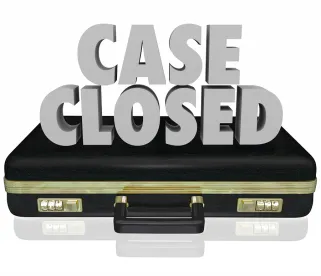Trends & Analysis
-
This issue looks at 18 health care–related qui tam cases that were unsealed in whole or in part in late October through November 2016.
-
The cases identified were filed in federal district courts in 12 states, including California (5), New York (3), Alabama (1), Arkansas (1), Florida (1), Hawaii (1), Kansas (1), New Jersey (1), New Mexico (1), North Carolina (1), Oklahoma (1), and Pennsylvania (1).
-
The federal government declined to intervene in nine of the 18 cases. Five more cases were voluntarily dismissed before any action was taken by the government. The federal government intervened, in whole or in part, in three cases. In the two remaining cases, the government’s intervention status could not be discerned from the unsealed filings.
-
Nature of the Claims
-
Nine of the recently unsealed cases included both state and federal claims.
-
Four involved allegations of unlawful kickbacks. Of these, two also alleged violations of the Stark Law (42 U.S.C. § 1395nn).
-
Claims for relief under state or federal anti-whistleblower retaliation provisions appeared in nine of the 18 recently unsealed cases.
-
The cases remained under seal for an average of just over two years (774 days). The median number of days cases remained under seal was 573.5. United States ex rel. DiBenedetto v. Vahedi, which was heard in the U.S. District Court for the Central District of California, was under seal for the shortest amount of time, at 104 days. United States ex rel. Harmsen v. Moore County Dental Care Center, which was filed in the U.S. District Court for the Middle District of North Carolina, was under seal the longest, at 2,075 days (over five and a half years).
-
-
In nearly three-fourths of the unsealed cases (13 of 18), relators were current or former employees of the defendant.
Three of the unsealed cases were settled with the Department of Justice; two of them present unique issues that we highlight below.
Featured Unsealed Cases
United States ex rel. Thomas v. Best Choice Home Health Care Agency, Inc., No. 2:13-cv-02209 (D. Kan.)
Complaint Filed: May 6, 2013
Complaint Unsealed: October 24, 2016
Intervention Status: On October 21, 2016, the United States intervened for purposes of settlement.
Claims: The relator brought claims under the federal False Claims Act (“FCA”), 31 U.S.C. § 3729 et seq., based on the submission of false claims to Medicaid premised on a false certification of compliance with the Anti-Kickback Statute (“AKS”), 42 U.S.C. § 1320a-7b(b)(2)(B).
Name of Relator: Christopher Thomas
Defendants’ Business: Defendant Best Choice Home Health Care Agency, Inc. (“Best Choice”) is a home health care services provider owned and operated by defendant Reginald King.
Relator’s Relationship to Defendants: Former employee. The relator was an office assistant for Best Choice for three months in 2008 and a case manager for Best Choice from November 2010 to March 2011. In 2009, the relator opened a business that provides transportation for individuals from their homes to health care facilities to receive health care services. Between 2010 and 2014, the relator allegedly referred clients to the defendants in exchange for payment.
Relator’s Counsel: Mark A. Kistler and Michael F. Brady of Brady & Associates Law Office.
Summary of Case: The complaint concerns treatment provided to patients under a Medicaid § 1915(c) Home and Community-Based Services Waiver that focused on traumatic brain injury services (a “TBI waiver”). After providing four years of treatment under the TBI waiver, Best Choice continued to provide services that were reimbursed under a different Medicaid waiver. Payment under the TBI waiver was typically in exchange for providing personal care assistants (“PCA”) services and transitional living specialists (“TLS”) services to individuals suffering from TBI.
The relator, Christopher Thomas, served as an office assistant to Best Choice for the last four months of 2008, after which time he started Vision Group Transport Service (“Vision Group”). Vision Group provided transportation for individuals from their homes to health care facilities in the Kansas City area.
The complaint alleged that, after becoming aware of the relator’s new business, defendant King offered to pay the relator a kickback based of the number of PCA and TLS service hours that Best Choice provided to clients who were referred by the relator. The complaint alleged that the relator accepted King’s offer and, in fact, received thousands of dollars of payments. In addition to these payments, the complaint alleged that:
King would pay $50 to individuals for each client referred to Best Choice in addition to the service hour payments;
Signs were placed in the Best Choice office advertising the $50 referral payment;
Best Choice employees would falsify timesheets to inflate the number of TLS hours they performed; and
Client signatures were routinely forged.
The Department of Justice intervened in the case to settle it.
Current Status: On October 25, 2016, Best Choice and King entered into a $1.8 million settlement agreement with the United States and the State of Kansas. The civil case was dismissed on December 16, 2016.
Reasons to Watch: Aside from the flagrancy of the alleged scheme, this case is notable for the settlement’s treatment of the co-conspirator relator. Despite participating in the illegal kickback scheme, the relator received $43,178 of the $1.8 million settlement. This represented the relator’s share of 10% of the recovery under the FCA, less than the amounts he received in kickbacks. As this settlement illustrates, relators who participate in kickback schemes can receive a share of an FCA settlement provided that they are not convicted of criminal conduct for their role in the FCA violation. Even though the relator was not convicted, his receipt of settlement proceeds is notable given his direct role in personally profiting from the alleged scheme. By paying relators’ shares to qui tam relators who are complicit in schemes to submit false claims, the government creates an incentive for wrongdoers to turn on their co-conspirators, thus facilitating FCA enforcement. Thus, any provider that might be tempted to enter into a prohibited kickback arrangement runs the risk that a turncoat referral source could become a qui tam relator.
The case may also be a harbinger of future cases. The FCA claim is based on kickbacks specifically tailored to the features of a Medicaid § 1915(c) waiver program. Waivers such as the one involved in this case give states leeway to design Medicaid benefits that would otherwise be prohibited under federal law. Some predict that the Trump administration will take steps to increase state power over Medicaid funds. One way to accomplish this is by granting an increased number of waivers, which could in turn provide more avenues for fraudulent conduct.
United States ex rel. Geraci v. Zwanger & Pesiri Radiology Group, LLP, No. 2:13-cv-05002 (E.D.N.Y.)
Complaint Filed: September 6, 2013
Complaint Unsealed: November 16, 2016
Intervention Status: The United States and the State of New York intervened in part on November 16, 2016.
Claims: The relators brought claims under the federal FCA and the New York False Claims Act, N.Y. State Fin. §§ 187 et seq., for false claims submitted to Medicare and New York’s state Medicaid program. The relators allege that the defendants submitted claims for unordered, unnecessary, unperformed, or otherwise improper diagnostic tests and related services.
Names of Relators: Donna Geraci and Linda Gibb
Defendants’ Business: Defendant Zwanger & Perisi Radiology Group LLP (“Zwanger”) is a radiology company that employs over 50 physicians and owns and operates 10 diagnostic testing facilities in New York. Defendant Zwanger Radiology P.C. is an associated radiology physician practice group opened by defendant Steven Mendelsohn in 2010. Dr. Mendelsohn has an ownership and control interest in all of the Zwanger facilities.
Relators’ Relationship to Defendants: Former employee and current employee. Relator Geraci is a billing specialist and was employed by Zwangerfor nine months in 2011. Relator Gibb has worked for Zwanger as a medical biller in the Medicare Review Department since 2010.
Relators’ Counsel: Mitchell J. Birzon of Birzon, Strang & Associates and Timothy P. McCormack of Phillips & Cohen LLP.
Summary of Case: The relators alleged that the defendants engaged in several fraudulent billing schemes. First, when physicians would order multiple tests on a patient, Zwanger allegedly violated the Multiple Procedure Payment Reduction rule by requiring patients to schedule only one test per day if scheduling multiple tests on a single day would result in lower reimbursement. Zwanger’s employees allegedly told patients that the reason for scheduling the tests on different days was because their insurance would not cover them if performed on the same day.
In addition, the relators alleged that Zwanger billed Medicare and Medicaid for medically unnecessary tests that were automatically scheduled by Zwanger’s staff despite not being ordered by the treating physician. For example, one relator noticed that almost every patient referred to the defendants for a dual energy x-ray absorptiometry bone density study also received a vertebral fracture assessment, even though the latter was rarely ordered by the physician. Additionally, Zwanger would allegedly perform both a pelvic and transvaginal ultrasound when only one was ordered by the treating physician. Zwanger allegedly trained its staff to inform patients that the tests were medically necessary for sufficient imaging.
The relators also alleged that the defendants billed Medicare for tests performed at unauthorized locations or read by radiologists who were not properly credentialed. The defendants allegedly submitted claims listing Dr. Mendelsohn as performing or supervising procedures when he had not done so and used incorrect modifiers for procedures performed or supervised by physicians who were not enrolled in Medicare or Medicaid. The defendants also allegedly billed for tests never performed, including billing for venipuncture when only a finger stick was actually done.
The government intervened in the civil suit as to the claims that the defendants fraudulently billed for tests that were not ordered by the treating physician, were never performed, and/or were performed by an uncredentialed provider at an uncredentialed location. The government did not intervene with respect to the claims that Zwanger violated the Multiple Procedure Payment Reduction rule. In addition to the civil suit, the United States and the State of New York brought criminal charges against Zwanger for illegally performing and billing for procedures not ordered by treating physicians.
Current Status: On November 16, 2016, Defendants pled guilty to two counts of health care fraud. Defendants agreed to pay fines of $2.4 million in the criminal case and over $8.1 million to resolve civil liability to the United States and the State of New York. As part of the settlement, the defendants entered into a Corporate Integrity Agreement with the Office of Inspector General (“OIG”) in the Department of Health and Human Services. The case was dismissed on January 3, 2017.
Reasons to Watch: This case is noteworthy because it demonstrates how enforcement authorities continue to be concerned with medical necessity issues, which have arisen in many recent cases. Such claims are more likely to be advanced in cases such as this one, where the defendants performed tests not ordered by treating physicians and the lack of medical necessity could be easily proven. In addition, it is noteworthy that the government not only intervened in the civil suit but also brought criminal charges, likely due to the egregiousness of the claims and the harm potentially caused to patients.







 />i
/>i
